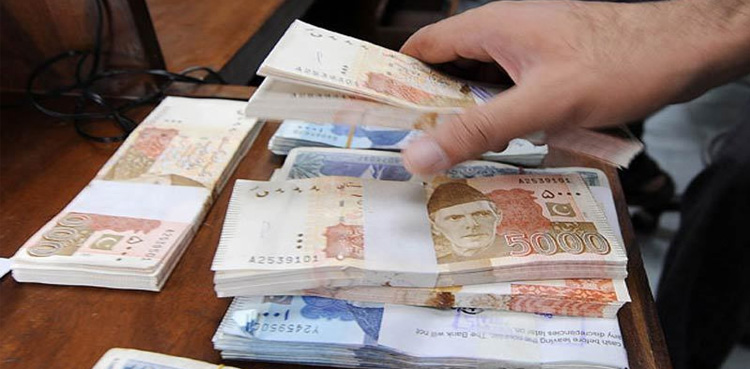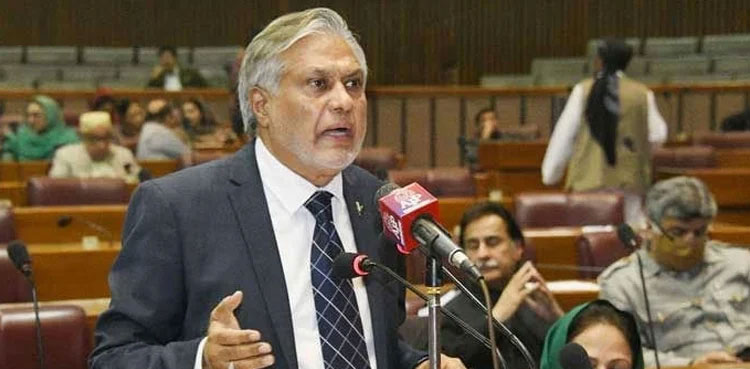Economy in doldrums despite IMF deal
- By Asrar Raouf -
- Aug 03, 2023

With the prospects of national elections getting stronger by the day, the economic prospects are getting dimmer. The uncertainties of a caretaker government are taking hold and no one is willing to hazard a guess about which way the economic affairs will take in Pakistan.
It is quite clear that the economic mess the country finds itself in is still harming the economic scenario of the country and a change of horses in the middle spell further complications but this eventuality cannot be avoided as the international lenders and their supporters desire the democratic process to go on and have taken practical steps such as getting in touch with the entire civilian political spectrum and apprising them of the financial assistance provided by them. They were categoric in their approach as they even specified the amounts to be lent and the planned time frame.
This attempt is to preclude any attempt at proxy and hybrid rule that has been repeatedly threatened by the ever-growing supporters of the arbitrary forces that are unwilling to loosen their grip on national affairs.
In this atmosphere of uncertainty, the most serious issue facing the economic planners is the growing lack of avenues to garner revenue. It is clear by now that the revenue generating taxation authorities are able to collect an amount that falls short of the national need. This fact has been borne out by successive failures of the taxation machinery and since it is the only machinery the government has therefore any dispensation could not possibly trust that its financial deficit would ever be bridged. The failure of the taxation machinery is evident in the fact that it has consistently failed to broaden the tax base and its personnel are far too compromised and set in their ways to change the status quo. The lack of taxation revenue is actually the main issue repeatedly brought to bear by all international lenders but to no avail.
The situation is compounded by the confusion prevalent in the crucial field of taxation policy as was reflected lately when the incumbent finance minister rebuffed reports that the government was planning to impose new taxes on agriculture, retail and construction sectors but then a day later he insisted that the taxes on these two sectors have been agreed with the IMF for its new loan and that they have already been implemented in the budget.

The budget is estimated to generate additional revenues of Rs.80 billion by increasing the tax rate for builders and developers and non-filers on the purchase and sale of immovable property and second homes. The changes in the rates were part of the government’s effort to secure the IMF bailout by raising additional tax and non-tax revenues during the present financial year to meet the programme goal of producing primary surplus equal to 0.4 per cent of GDP, as well as strengthen tax collection to 10.3 per cent of GDP.
It is well known that all political parties, the powerful civil and military bureaucracy are averse to taxing incomes from retail, real estate and agriculture considered the economy’s three largest segments because of their vested interests. It is reported that economic managers are prevented by high-ranking functionaries of the state from taking steps to document the massive file business in real estate.
Similarly, a top political leader insisted that the finance minister of their government revoked a nominal tax he had dared to impose on the electricity bills of the retailers considered the core support group of the political party. The narrow tax base and low tax-to-GDP ratio means that the documented corporate sector and salaried classes will bear the burden of any increase in the tax target.
Though the new IMF loan deal commits the government to expand the personal income tax base by adding 300,000 persons but very few believe that the ruling class of the country has enough spine to achieve this target owing to political reasons.
Keeping in view this situation it is not surprising to note that the government is constrained to part away with its family silver as there is no other way of raising enough revenues to meet the national financial needs.
The incumbent government accordingly has seven state assets with a net worth of Rs.2.3 trillion to be transferred into a new Pakistan Sovereign Wealth Fund for raising funds through the sale of shares and using their earnings for capital investments.
Pakistan Sovereign Fund is in the process of getting established through an act of parliament and the bill in this respect would propose to be exempted from three core laws: the Privatisation Commission Ordinance, Public Procurement Regulatory Authority Ordinance and the State-Owned Enterprises (SOE) Act, 2023. The decision to seek exemption from these laws suggests that the government might quickly sell some of the identified assets or use them to raise loans.

It is worthwhile to mention that the latest IMF staff level report also mentioned the sale of state-owned assets to official bilateral creditors and foreign sovereign wealth funds. It was also reported that since there was no centralised pool of national assets and a lack of structure to leverage and generate liquidity therefore the government was unable to attract foreign investment against fragmented national assets.
The government is accordingly in the process of finalising the broad parameters of the Fund including utility, governance structure and transactions flow. The Sovereign Fund will be established for optimal leveraging and better management of the government’s assets in line with international standards, policies, and practices. The federal government will fully own the fund and the initial capital will be provided through the transfer of shareholding of the SOEs.
The Fund can make direct investments in existing and new projects and it will be used to leverage against existing assets and invest through joint ventures with private parties, foreign sovereign wealth funds, and governments. In light of the arrangement with foreign investors, the structure could be any legal form such as a company and trusts. The money raised through the sale of the assets can be used as Pakistan’s shares in joint ventures in areas of agriculture, mining, and information technology sectors. The establishment of the Fund was provided technical support for drafting the law by Abu Dhabi Investment Authority (ADIA).
Initially the government may transfer seven companies into the new sovereign wealth fund that will provide a major impetus to the wealth fund. In this context the identified entities include Oil and Gas Development Company Limited (OGDCL), Pakistan Petroleum Limited, National Bank of Pakistan, Pakistan Development Fund, Government Holdings Private Limited, Mari Petroleum Company Limited and Neelum Jhelum Hydro Power Company Limited.
The United Arab Emirates (UAE) has shown interest in the past to acquire stakes in Pakistan’s oil and gas sector companies indicating a possibility for divesting shares of these assets. Pakistan’s economic relations with the UAE have suddenly taken an upward trajectory. The government is in the process of handing over 85% of the East wharf of the Karachi port to the Abu Dhabi Ports. It is also pushing the Ministry of Commerce to sign a Comprehensive Economic Partnership Act (CEPA) with the UAE before the end of the term.
